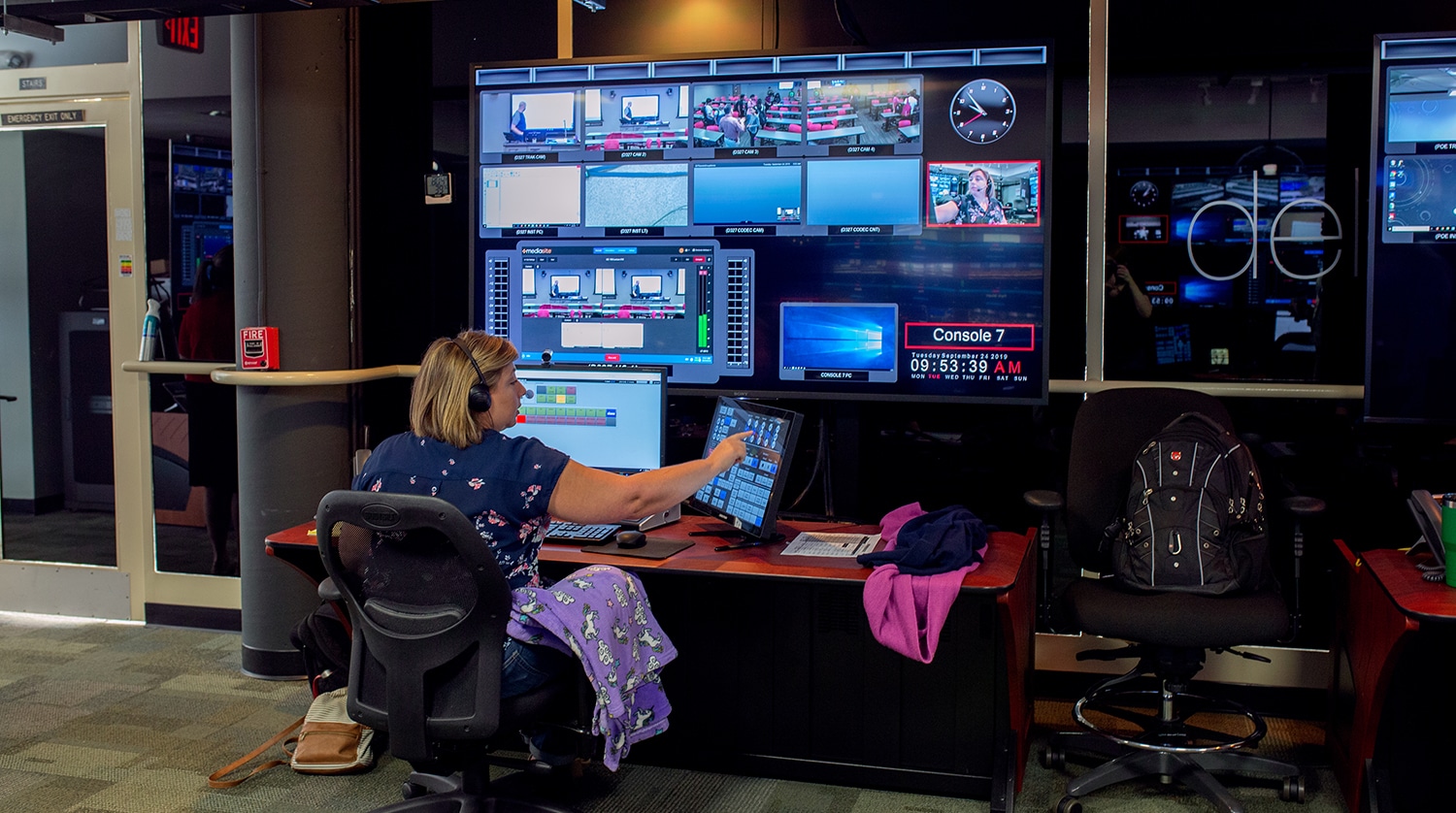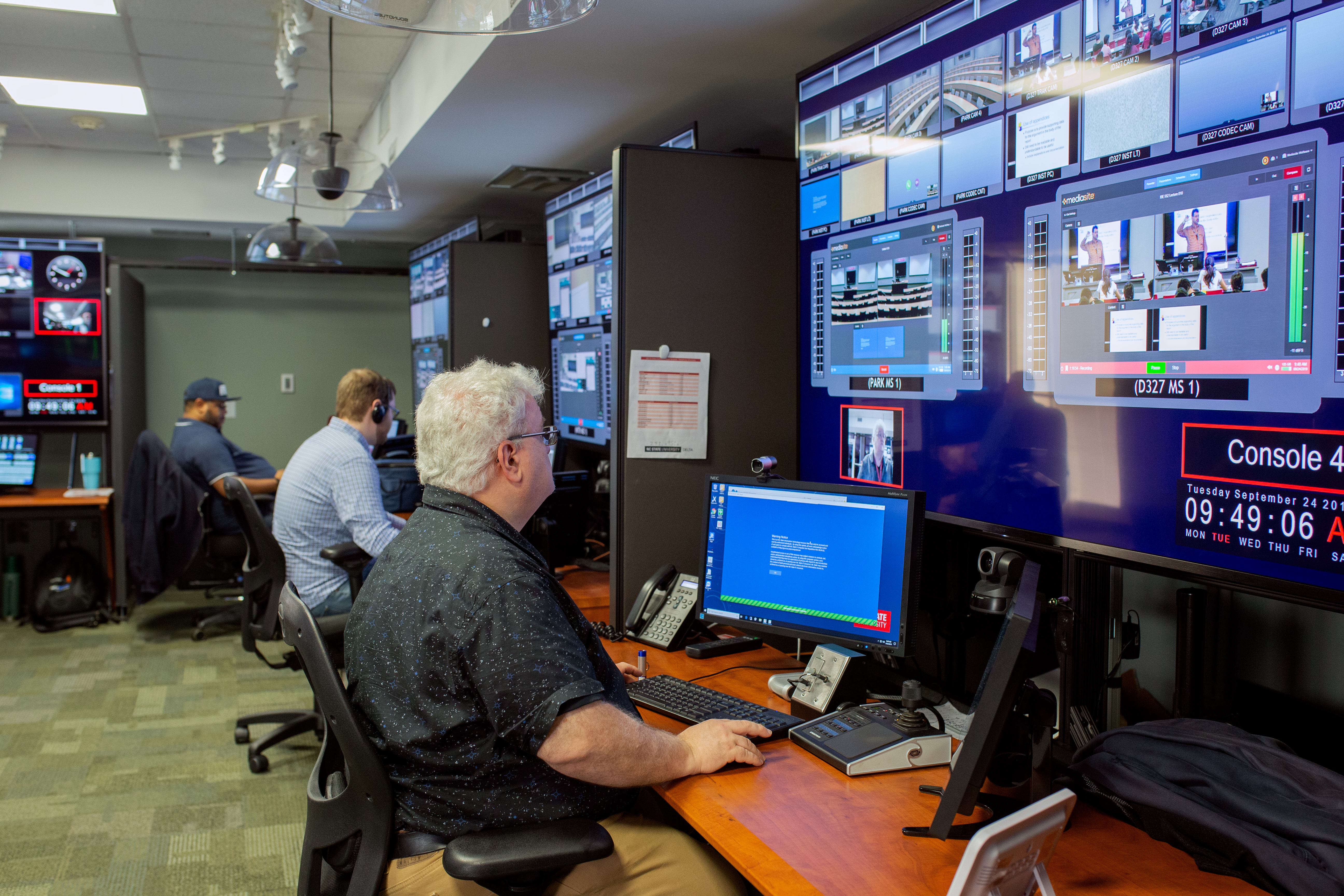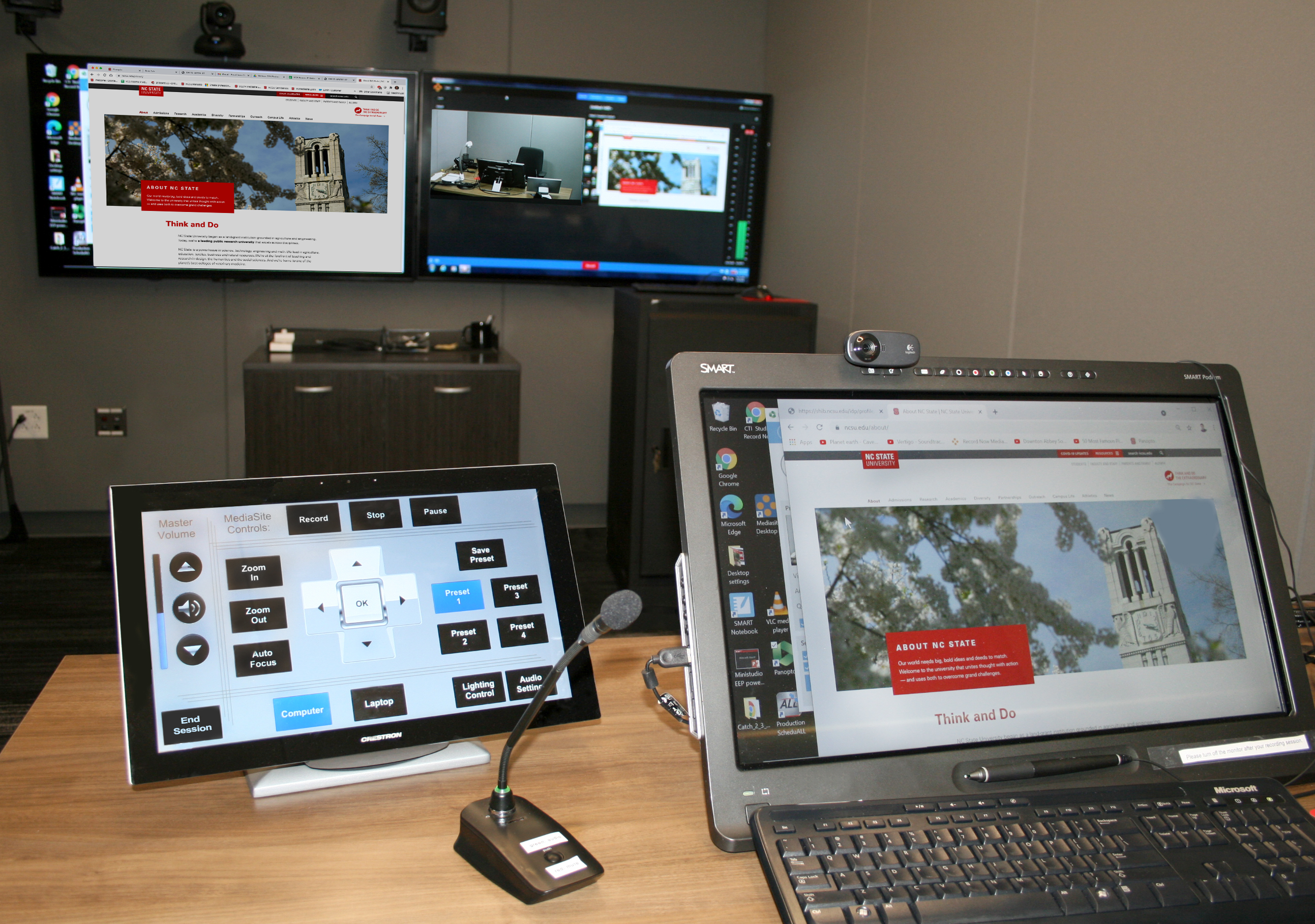VCS: Taking Care of Business and Colleagues

When the COVID-19 pandemic called for most of the NC State community to abandon ship, Senior Associate Director Tony Pearson, IT Manager Shawn Colvin and their team of DELTA Video Communication Services (VCS) professionals were in an all-hands-on-deck mode of operation. Fortunately, they had many systems already in place prior to the pandemic that helped them to weather the storm.
Many NC State faculty members wondered how they would get through the spring and fall semesters of 2020. The VCS team was considered “essential” and never left campus because their expertise was needed to help professors and students continue to have access to the quality education that they are accustomed to as a part of the NC State community.
“We had already revamped the business continuity plan prior to the pandemic. And, we have been through other situations that led to a campus shutdown that prepared us for this. We are one of the oldest units on campus. Our team was seasoned enough to understand that business still goes on,” explained Pearson.
Pearson noted that the VCS team is primarily responsible for classroom support for DELTA classrooms. So, when adverse weather disrupts the normal operating systems, the team has developed work flows to maintain business continuity. During the pandemic, the engineering team never left the campus. Their main goal was to ensure that infrastructure remained operational to support the delivery of course content.

Even prior to the pandemic, the nine DELTA media-enhanced classrooms, by design, included touch-less technologies which were helpful in reducing anxiety levels for the instructors as a result of the pandemic.
“Our DELTA classrooms are well equipped with advanced technology to assist in recording class lectures. We use motion tracking cameras that actually follow the presenter as they speak. Pan/Tilt/Zoom (PTZ) cameras are also used to capture student questions and comments. We have ceiling mounted microphones to capture both presenter and student comments as well. The classrooms are designed and integrated with instructional technology to help improve student success,” said Colvin.
The centralized operations center is used to monitor and support all DELTA classrooms where up to seven technicians can be stationed at any time. Colvin had to reposition people to only have two people in this room to comply with social distancing standards. Luckily, the other technicians could monitor classes remotely with their laptop computers.
Collaborative Efforts Campus-Wide
Pearson believes that the pandemic has helped to increase collaboration and streamline the way that online classes are conducted. His team helped not only with managing the DELTA classrooms but also helping instructors campus-wide with technology solutions in a timely, efficient manner. The pandemic created reasons for the VCS team to schedule regular meetings with campus partners that allowed collaboration between other campus departments such as the Office of the University Architect, Registration and Records and the university Facilities offices. This fostered new connections that are still in place.

DELTA has always been the enterprise provider for classroom lecture capture. One of the biggest collaborative efforts was to up-fit all remaining 110 classrooms with lecture capture capabilities. At that point, DELTA and ClassTech came together to put together a solution to integrate and install all the necessary hardware into each classroom. For their effort, the team received the 2020 IT Community Extraordinary Team Impact Award.
In addition, when the return to class efforts were happening for the fall 2020 semester, the VCS team was called upon to help get classrooms in line with the 50% seating capacity guidelines. Team members had to physically move chairs and tables out of classrooms and into campus storage along with other departments that were still operating on-campus.
Maintaining Work-Life Balance
“Our ultimate goal was to ensure the safety of our staff and their families. We had to consider work-life balance while developing alternative work arrangements that prioritized safety. We have worked alongside each other for a long time, so work-life balance is always at the forefront in consideration of their well-being. It took a new way of thinking about work,” added Colvin
Pearson and Colvin managed to use flexible alternative work schedules with virtually no overtime. They accomplished this by using remote work locations and staggered shifts to ensure that all the instructors were able to record their lecture material. The personnel structure was ever-evolving as a result of varying pandemic fear and anxiety levels. On top of that, they had to manage and coach their team through this unprecedented situation.
“It was outstanding professional development on all fronts. The cross organizational collaboration that started out of necessity during the pandemic now continues. We formed a powerful common bond that came from our collective efforts to serve the campus,” concluded Colvin.
This post was originally published in DELTA News.
- Categories:


